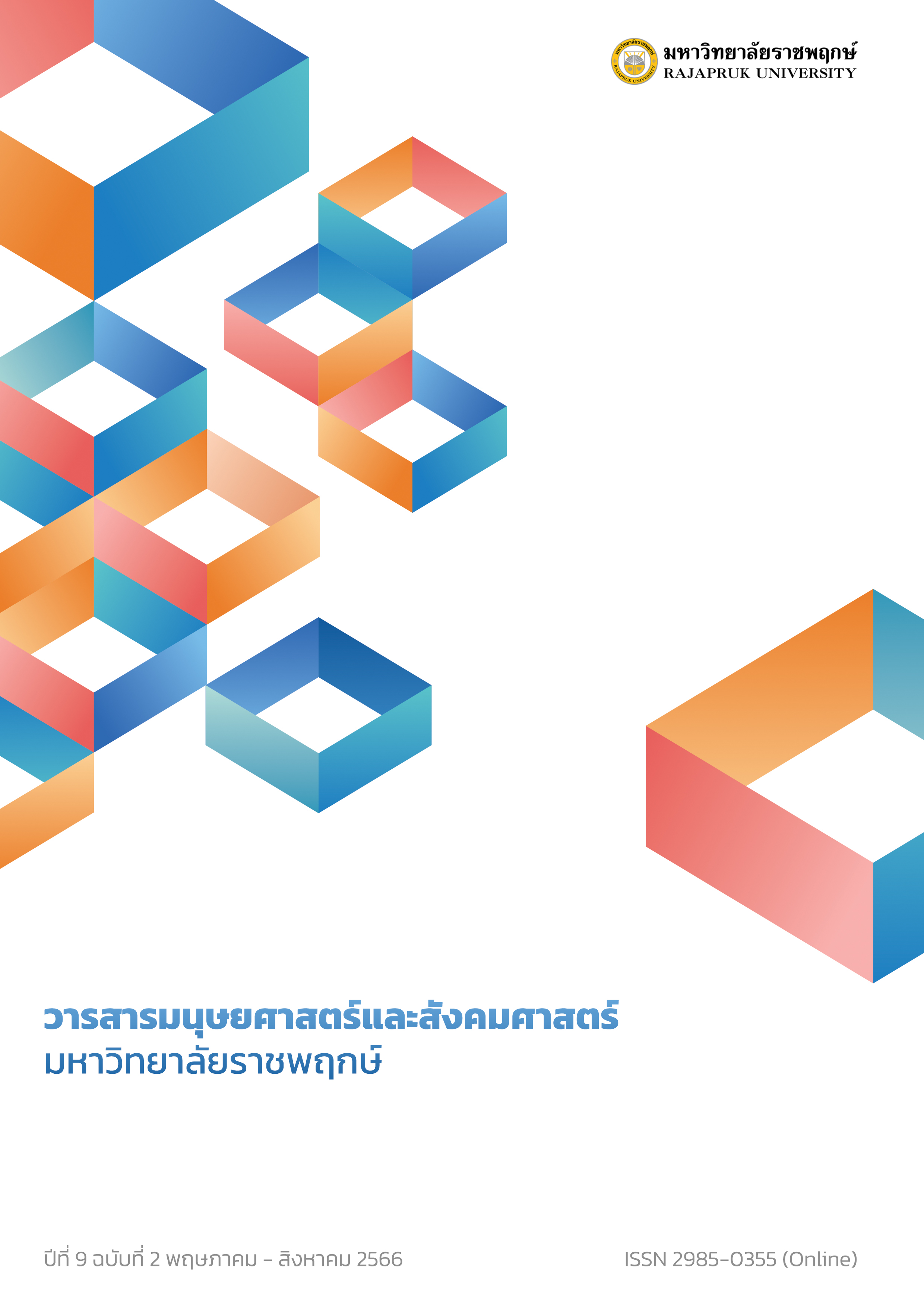Guidelines for Plastic Waste Management in Samut Prakan Province by the Principles of the Circular Economy
Main Article Content
Abstract
This academic article aims to 1) analyze the situations, problems, and impacts of plastic waste management in Samut Prakan Province and 2) to study waste management practices of successful agencies, including factors affecting the success of plastic waste management in order to create guidelines for plastic waste management in Samut Prakan Province according to the principles of the circular economy. It introduced an overview of the situation, impacts, plastic waste management and plastic waste crisis of Samut Prakan province that must manage it with maximum efficiency and fixing sustainable development according to the principles of a circular economy soonest by adapting a case study of an organization that has succeeded in managing plastic waste, namely Rayong Model, including guidelines for management, roadmap, plastic waste management B.E. 2561-2573, and also the circular economy concept and approaches for plastic waste management in foreign countries. This is a useful plastic waste management process that was used as a guideline for developing plastic waste management in Samut Prakan Province. It focuses on managing according to the principles of a circular economy that uses various resources as cost-effective as long as possible, reduce the amount of use, reuse, and transform them into raw materials and then bring them back to produce again (recycle). It is an endless cyclical use of resources to achieve maximum benefit and reduce waste from disuse with proper waste management according to the principle of promoting separation and recycling of waste to develop into a sustainable consumption plan according to the National Strategy B.E. 2561–2580 on creating growth for the quality of life that is environment-friendly; and on creating sustainable growth on the green economy. This makes it a model to create guidelines for managing plastic waste in Samut Prakan Province according to the principles of the circular economy for maximum efficiency and sustainability.
Article Details
References
กรมควบคุมมลพิษ. (2562ก). รายงานสรุปสถานการณ์มลพิษของประเทศไทยปี พ.ศ. 2561. ค้นเมื่อวันที่ 21 พฤษภาคม 2563, จาก https://www.pcd.go.th/wp-content/uploads/2020/05/pcdnew-2020-05-15_06-33-35_034969.pdf
กรมควบคุมมลพิษ. (2562ข). ร่าง roadmap การจัดการขยะพลาสติก. ค้นเมื่อวันที่ 27 พฤษภาคม 2563, จาก http://www2.pcd.go.th/Info_serv/File/17-09-62/40.pdf
ธนาชัย ปิยะศรีทอง. (2563). ระยองโมเดลความร่วมมือเพื่อการจัดการยะอย่างยั่งยืน. ค้นเมื่อวันที่ 27 พฤษภาคม 2563, จาก https://www.allaroundplastics.com/article/sustainability/7684
นิตยสารจับกระแสปากน้ำ. (2564). ระบบจัดการขยะเพื่อผลิตเป็นพลังงานเชื้อเพลิง RDFพร้อมเดินเครื่องแล้ว. ค้นเมื่อวันที่ 27 ธันวาคม 2564, จาก https://www.samutprakancity.go.th/uploads/content/2021/03/358/download.pdf
เพชร มโนปวิตร. (2561). ทำไมต้องCircular Economy ทางรอดของมนุษย์ในยุค Anthropocene ยั่งยืน. ค้นเมื่อ วันที่ 22 พฤษภาคม 2563, จาก https://web.tcdc.or.th/th/Articles/Detail/
ภัทราพร แย้มละออ. (2561). เศรษฐกิจหมุนเวียน–โอกาสใหม่ของธุรกิจเพื่อความยั่งยืน. ค้นเมื่อ วันที่ 21 พฤษภาคม 2563, จาก http://www.salforest.com/blog/circular_economy.
ศูนย์ข่าวพลังงาน. (2562). สู่ปีที่ 2 “ระยองโมเดล” พื้นที่ต้นแบบการจัดการขยะพลาสติก. ค้นเมื่อวันที่ 27 พฤษภาคม 2563, จาก https://www.energynewscenter.com
Biomimicry Institute. (2019). A sustainable world already exists. Retrieved on May, 8th, 2020, from https://bio mimicry.org/what-is-biomimicry
D’ Adamo, I. (2019). Adopting a Circular Economy: Current Practices and Future Perspectives. Retrieved on May, 20th, 2020, from https://www.researchgate.net/publication/337850289_Adopting_a_Circular_Economy_Current_Practices_and_Future_Perspectives.
ENERGY TIME ONLINE. (2563). วิกฤติขยะพลาสติก! มหาอำนาจโลกธุรกิจจะปรับตัวอย่างไร?.2020-04-26. ค้นเมื่อวันที่ 27 พฤษภาคม 2563, จาก https://www.unenvironment.org/
Euro Commission. (2019). Circular economy–Overview. Retrieved on May, 23th, 2020, from https://ec. europa.eu/ eurostat/web/circular-economy/overview.
Masi, D., Day. S., & Godsell, J. (2017). Supply Chain Configurations in the Circular Economy: A Systematic Literature Review. Retrieved on May, 14th, 2020, from https://www.researchgate.net/publication/319597576_Supply_Chain_Configurations_in_the_Circular_Economy_A_Systematic_Literature_ Review


